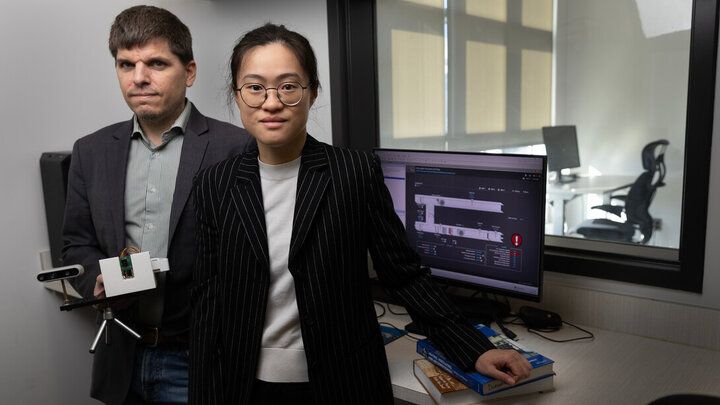On the west lawn of the Peter Kiewit Institute in Omaha stands a 1,000-square-foot building that, with its gray siding and simple rectangular shape, appears nondescript at first glance.
But in reality, it is a state-of-the-art laboratory, designed to simulate the construction of modern commercial buildings and equipped to allow researchers to manipulate various parameters — like lighting, acoustics and temperature — and assess occupants’ response, including physiological parameters like heart rate and skin temperature. The facility, called the Human-centered Integrated Building Operations, or HIBO, Laboratory, is home to University of Nebraska–Lincoln researchers who are working to shape the next generation of smarter, more sustainable and more comfortable buildings.




